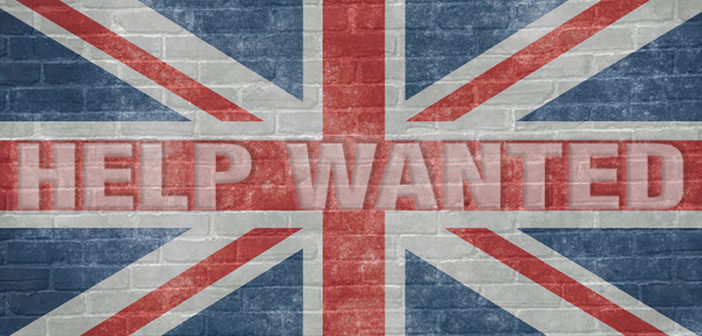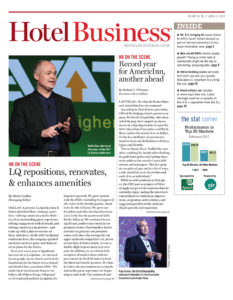INTERNATIONAL REPORT—Certainly, the United Kingdom is going through a tumultuous time. And while the recent horrific terror attacks on London are unlikely to have a long-term impact on travel—the industry has numerous historical data points to look to that show that tourism rebounds in the wake of such occurrences—there are no historical data points to look to when it comes to Brexit, the official separation of the United Kingdom from the European Union. What can we expect as the sovereign state embarks on the two-year process of separating its ties?
In the short term, travel seems to be up—but that’s more due to currency exchange. Ufi Ibrahim, the chief executive of the British Hospitality Association (BHA), said, “Since the referendum, there has been an increase in inbound tourism as people take advantage of the weakness of sterling, but we should not be relying on currency fluctuations to govern our industry. And, as the BHA Monthly Travel Monitor shows, the numbers of U.K. residents traveling abroad on holiday has also gone up.”
For his part, Nicholas Northam, managing director for the U.K. at Interstate Europe Hotels & Resorts, said, “At present, we’re seeing clear evidence that in the short term, Brexit is having a positive impact on visitor numbers. This is largely down to the value of the pound against the euro and the dollar making the U.K. a more attractive and affordable option to inbound tourists. However, despite the prime minister triggering Article 50 which begins the U.K.’s formal exit from the European Union, there still remains great uncertainty around the detail of Brexit and what exactly it will mean for the economy and the country’s borders.”
For instance, he said, if the value of the pound continues in its current position, “we believe the positive impact will continue. Equally, we have not seen the dramatic detrimental impact on the overall economy, which was widely predicted in the wake of Brexit.”
According to Ibrahim, one way to make sure the U.K. stays competitive—for both domestic and foreign travelers—is cutting the Tourism VAT (value-added tax). “At the moment, our Tourism VAT rate is twice that of Spain and Italy and three times that of France and Germany. This cannot be right,” she said, noting that the Campaign to Cut Tourism VAT calls for a reduced rate of Tourism VAT to 5%.
Of course, the big question surrounding Brexit’s affect on inbound travel is how easily U.K. citizens and those who are citizens of EU nations will be able to cross borders. “There is much talk of stricter border controls, but I do not believe these will deter inbound travelers from visiting the U.K.,” said Northam.
“When Brexit does happen, we need to ensure that traveling to our country is as easy as possible, which means visa-free access where applicable. Long lines at customs do not help in any circumstances,” Ibrahim said.
Peter Cashman, chief executive, Focus Hotels Management Ltd, which has some 16 hotels across the U.K. in its portfolio, noted that the exchange rate could create other challenges. “The cost of imports is rising and will continue to rise, especially impacting the hotel and catering industry,” he said, noting that a substantial proportion of food, liquor and general operational products such as linen are imported “from mainly Europe but also the rest of the world and these imports have already been impacted by the reduction in the value of the pound; these costs are likely to continue to increase.
“A key focus for our purchasing teams is to source home-produced products where possible, and identify new overseas suppliers whose production costs, and therefore prices, will help mitigate these issues,” he continued.
Another issue related to the reduction in the value of the pound? The purchase price of hotels. “Overseas investors have driven up the capital costs for hotels, making it harder for U.K.-based operators to acquire hotels,” Cashman said.
Regardless of how the currency fluctuation that has occurred since the referendum pans out, there is one area of operating a hotel that will definitely be negatively impacted by Brexit—labor. “This is potentially a very serious problem for hotel and catering businesses—and business in general—especially in food production and healthcare,” Cashman said. “A significant percentage of labor comes to the U.K. from the EU and Brexit is causing this labor to look elsewhere already. There are also many well-funded cross Europe student training programs which will potentially also terminate, impacting future supply of well-trained labor.”
“It’s no secret that here in the U.K., European workers play a vital role in our service delivery,” Northam added, noting that with regard to both labor and supplies “it’s still very much a case of waiting and watching to see what decisions are made by the U.K. government and what deals are struck.”
BHA recently partnered with KPMG to study the impact of labor on the hospitality sector. It found that 12.3-23.7% of the U.K. hospitality sector workforce is currently made up of EU nationals. According to the report, 75% of wait staff, 25% of chefs and 37% of housekeeping staff migrate from the EU.
In a scenario without further EU migration after the planned 2019 separation, but where existing EU nationals are not required to leave and the recruitment of U.K. and workers from other parts of the globe remain constant, the report found hospitality faces a recruitment crisis with upwards of 60,000 workers per year needed in addition to the ongoing recruitment of 200,000 workers required to replace churn and power growth. By 2029, based on this scenario, the recruitment gap could reach over one million workers (by comparison, hospitality in the U.K. employs some 3.5 million workers).
Finally, the report found that regions with a higher percentage of EU nationals—like London—will be more adversely affected as they, not surprisingly, are more highly reliant on EU workers.
“It is clear from the KPMG report that the hospitality and tourism industry faces major problems in recruitment if there is any major cut in the number of workers allowed to enter from the EU. We want to avoid there being any cliff edge, but the government must be aware that in the medium to long term we will still need considerable numbers of EU workers, who have contributed so much to our industry and the U.K. economy in general,” Ibrahim said.
As such, BHA has submitted its recruitment strategy to 10 Downing Street. The strategy focuses on three main sections of the populations—the unemployed, returners to the labor market such as older people, and the next generation. “This includes using Premier League clubs as centers for running job fairs under the name ‘The Big Hospitality Conversation.’ These have already been held successfully at Liverpool’s Anfield stadium and Tottenham’s White Hart Lane, among others,” Ibrahim said.
“And we all need to up our game in attracting people into hospitality and tourism. We need to bring about a sea change in the perception of our industry. When young people are asked what they want to be when they grow up, we want them to say, ‘Run a hotel’ as well as the usual answers,” she continued.
“The challenge for all businesses remains the uncertainty that surrounds Brexit, which makes it very difficult to predict what will happen in the future,” Northam said.
“The first thing that an owner/operator must do is recognize the labor issue and start planning for any eventuality… I am confident that with the right government support this industry will continue to flourish. But we can never sit still,” Ibrahim concluded. HB


